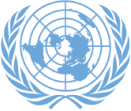This Day marks the anniversary of the Sharpeville massacre, in which 69 innocent black South Africans lost their lives. That tragedy shook the conscience of the world community and led the General Assembly to proclaim 21 March as the International Day for the Elimination of Racial Discrimination. By commemorating this Day, we once again condemn and reject racial discrimination in all its forms and manifestations. We also use this occasion to express our resolute opposition to any form of discrimination based on race, colour, creed and national or ethnic origin.
The United Nations has always stood for the equal rights of all people. The principles codified in its Charter and in the Universal Declaration of Human Rights compel us all to stand against racism, racial discrimination and apartheid. Our Organization made a critical contribution towards the peaceful elimination of apartheid when the General Assembly, at its sixteenth special session in December 1989, adopted by consensus the Declaration on Apartheid and its Destructive Consequences in Southern Africa. The developments which have occurred in South Africa since the adoption of that historic Declaration have repeatedly underscored its relevance and importance. Subsequent resolutions adopted by the General Assembly have reaffirmed the provisions of the Declaration. The decisions of the Security Council and the General Assembly and the important efforts of the Secretary-General have all had a positive impact on developments in South Africa.
Today, for the first time, we can express our confidence that apartheid will soon have been eradicated from South Africa. The momentum for the establishment of a democratically elected Government now seems unstoppable. Next month the right to vote will finally be extended to all South Africans, regardless of race, enabling them to determine the future of their country. With the progress achieved in the last few months, and in particular the establishment of a Transitional Executive Council, the South Africans have sent a clear message to the world that reconciliation and harmony in a racially mixed country are possible. At a time when entire communities are suffering from a mounting wave of nationalism, racial and ethnic discrimination and racially motivated acts of violence, this is an important message indeed.
However, the process of transition in South Africa is still threatened by political violence and intimidation. The continued violence in Natal and the recent events in Bophuthatswana demonstrate once again the fragility of the political situation in the country and the need to adopt more stringent measures to curb this violence. As requested by the General Assembly at its last session, all parties should refrain from acts of violence and recommit themselves to the process of peaceful transition by implementing the provisions of the National Peace Accord. Political tolerance, the promotion of democratic values and the protection of human rights are essential in building a non-racial, democratic South Africa.
While much of the violence is politically motivated, its escalation must also be seen to be linked to the deteriorating socio-economic situation and dismal living conditions faced by the majority of South Africans. Illiteracy and extremely high levels of unemployment are additional aggravating factors. There is therefore an urgent need for programmes of socio-economic assistance to be put into place. Resources will have to be mobilized for the enormous tasks of reconstruction and rehabilitation to reverse the destructive effects of decades of apartheid. The lifting of economic sanctions, decided by the General Assembly last fall, was a step in this direction.
What is now needed is the persistent and active involvement of the international community in rendering economic assistance to South Africa. The victims of apartheid have high expectations that the new democratic order will mean tangible economic and social advancement for them. Those expectations should be decisively addressed. It will require tremendous efforts from South African society as well as a significant input of resources from the international community. The historic opportunity that has now emerged in South Africa must succeed for the benefit not only of that country, but also of the world.
It must not be forgotten that racial discrimination continues to prevail in many other places. We must therefore look beyond South Africa and strive to conquer this evil wherever it exists. In this regard, we should seek to give full effect to the International Convention on the Elimination of All Forms of Racial Discrimination, by which the international community has agreed to guarantee the human rights of all peoples. Racial discrimination has no place in a world which we, the membership of the United Nations, have pledged to rid of social injustice.


